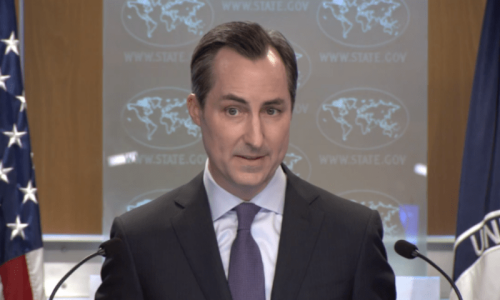
THE Punjab Irrigation Department is considering an increase in the irrigated water tax (abiana) rate per acre for farmlands under Culturable Command Area while facing around 20pc shortfall in the overall targeted collection.
Such moves in the past have been frustrated by farmers’ resistance despite pressure from international lenders in order to recover cost of maintenance of canals from cultivators.
The department collects water tax as service charges through the patwari and the revenue department and through five area water boards in five canal circles and farmers organisations (FOs) at distributary level.
“There is a proposal to increase the annual flat water tax rate by about 50pc but the irrigation and finance departments, despite several meetings, have yet to decide anything”
“There is a proposal to increase the annual flat rate by about 50pc but the irrigation and finance departments, despite several meetings, have yet to decide anything”, said a senior official.
Speaking to Dawn he said the government had been charging annual flat rate of Rs135/acre (Rs50 for rabi crop and Rs85 for kharif crop) for the last 12 years or so, whereas the supply of water cost the government Rs875/acre.
Under a phased programme and under persuasion of international financial institutions, the water rates are expected to go up to Rs1200-1800/acre, jumping from Rs135 to Rs850/acre in the first phase, according to unconfirmed reports. The rates could be revised upward after every two years.
The collection mode will also change. The payment will be computerised and will be paid in banks instead of revenue offices. There is also a proposal that the cemented canals will be given to the private contractors who will decide abiana rate. For this purpose, the Canal and Drainage Act 1873 may be amended.
However, officials do not confirm reports of an expected increase of 50pc in abiana rates.
Official statistics of the Punjab Irrigation and Drainage Authority (PIDA) show that abiana collection for fiscal year 2015-16 was 80pc of the total assessment.
PIDA plans to expand the scope of AWBs to the Pakpattan Canal and Thal Canal in near future. Official claims after the introduction of AWBs and involvement of farmers organisations, the ratio of water disputes and litigation among farmers has witnessed a decline in five canal circles.
Farmers complain of deprivation of their due water share, increasing water theft and diversion of their water share to influential landlords.
“How can you expect those farmers who do not pay abiana and either go into litigation when the irrigation field officials help influential politicians and landlords steal water share of deserving farmers especially those who have their lands at the tale-end of the canal”, says a farmer from Rajanpura.
He argues that the increasing abiana rate will have no impact on farmers who refuse to pay water tax on various grounds. “The small farmers and tenants will be the worst affected.”
However, Agri Form Pakistan president Dr Ibrahim Mughal believes the increase in abiana rate will have no negative impact on the farmers and agriculture productivity if it is collected properly and spent on the maintenance of canal, distributaries and water courses for improved water supply to the deserving farmers.
He says the real challenge for the department is to control water theft and ensure water supply up to tail-end if it expects from the farmers to pay abiana without any resistance.
Mughal held the irrigation department officials responsible for 90pc cases of litigation involving water disputes, non-payment of abiana and water theft. He believes that the constitution of AWBs and FOs since 2005 has apparently failed to protect the water rights of small farmers.
He suggests semi-privatisation and the abiana collection for canal maintenance.
Published in Dawn, Business & Finance weekly, March 27th, 2017













































Dear visitor, the comments section is undergoing an overhaul and will return soon.